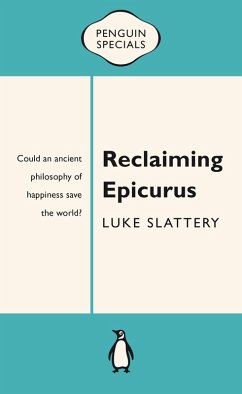In this thoughtful Penguin Special, Slattery traces the radicalism of classical Epicurean thought, and its popularity despite political suppression. Along the way, he tours the archaeological sites of the ancient village of Oinoanda in Turkey and the Villa of the Papyri, buried along with Pompeii, with its ancient library of petrified scrolls. Might some of this treasure's fragments, painstakingly restored, reveal answers to the big questions faced in the twenty-first century?
Dieser Download kann aus rechtlichen Gründen nur mit Rechnungsadresse in A, B, BG, CY, CZ, D, EW, E, FIN, F, GR, H, IRL, I, LT, L, LR, M, NL, PL, P, R, SLO, SK ausgeliefert werden.


